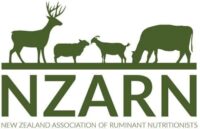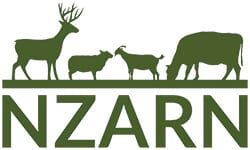Gary discussed three methodologies currently being worked on as mitigation strategies for methane reduction:
- Genetics
- Certain sheep have been identified as having low methane emisions. These are also sheep whtat are low yielding so there is a trade-off with performance. This is explained that lower performance comes from lower VFA production so less energy for growth.
- Vaccines
- Work would suggest that these cannot reduce methane substantially. The way vaccines work would suggest this cannot have a real impact in the rumen
- Seaweed
- The active ingredient in seaweed is bromoform so better just to produce bromoform rather than dragging seaweed out of the sea. Bromoform does speed up ozone destruction. This is not a sustainable solution.
More research is needed on sustainable alternatives to reducing methane emissions.
NZARN members a copy of the presentation is available below if you are logged in.
This content has been restricted to logged in users only. Please login to view this content.
Non-members looking for more information are encouraged to use our ‘contact a nutritionist’ form and ‘member directory’ to find a member who can help them answer their questions.
If you are a Rural Professional interested in joining the NZARN please see our ‘membership’ section.

